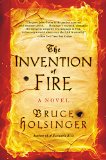Summary | Excerpt | Reviews | Beyond the Book | Readalikes | Genres & Themes | Author Bio

We settled on three pounds. A minor fortune to Ambrose Birch, if a mouse's meal to his son-in- law. The money, of course, was beside the point. It was the information that bore the value. Each new fragment of knowledge a seed, to be sown in London's verdant soil and spring yet another flower for my use.
I gave him the usual warnings. I've made arrangements with a clerk across the river . . . In the event of my passing . . . And should there be another incident . . . Birch, still ignorant, left the house through the priory yard, the clever forgery he had just purchased curled in his moistened palm.
Will Cooper, my servant, bobbed in the doorway. Kind faced, impossibly thin but well jowled, with the crinkled eyes of the aging man he was. "Master Gower?"
"Yes, Will?"
"Boy for you, sir. From the Guildhall." Behind him stood a liveried page from the mayor's retinue. I gestured him in. "Speak," I said.
"I come from Master Ralph Strode, good sir," the boy said stiffly. "Master Strode kindly requests the presence of Master John Gower at Master John Gower's earliest."
"The Guildhall, then?" Ralph Strode had recently stepped down from his longtime position as the city's common serjeant, though the mayor had arranged an annuity to retain him for less formal duties.
"Nay, sir. St. Bart's Smithfield."
"St. Bart's?" I frowned at him, already dreading it. "Why would Ralph want me to meet him in Smithfield?" Located outside the walls, the hospital at St. Bartholomew tended to the poorest of the city's souls, its precincts a stew of livestock markets and old slaughterbarns, many of them abandoned since the pestilence. Not the sort of place to which Strode would normally summon a friend.
"Don't know, sir," said the boy with a little shrug. "Myself, I came across from Basinghall Street, as Master Strode was leaving for St. Bart's."
"Very well." I dismissed him with a coin. Will gave me an inquisitive look as the boy left. My turn to shrug.
I had eaten little that morning so stood in the kitchen as Bet Cooper, Will's wife, young and plump to his old and lean, bustled about preparing me a plate of greens with cut lamb. A few swallows of cider and my stomach was content. At Winchester's wharf I boarded a wherry for the London bankside below Ludgate at the mouth of the Fleet. A moderate walk from the quay took me across Fleet Street, then up along the ditch to the hospital.
St. Bartholomew's, though an Augustinian house like St. Mary Overey, rarely merited a visit given the unpleasant location, easily avoidable on a ride from the city walls to Westminster. The hospital precinct comprised three buildings, a lesser chapel and greater church as well as the hospital itself, branched from the chapel along a low cloister. An approach from the south brought visitors to the lesser church first, which I reached as the St. Bart's bell tolled for Sext. I circled around the south porch toward the hospital gates, where the porter shared his suspicions about my business. They were softened with a few groats.
The churchyard, rutted and pocked, made a skewed shape of drying mud, tufted grass, and leaning stone, all centered on the larger church within the hospital grounds. Not a single shrub or tree in- terrupted the morbid rubble. Shallow burials were always a problem at St. Bart's. Carrion birds hooking along, small demons feeding on the dead. Though the air was dry, the soil was moist and the earth churned underfoot, alive with the small gluttonies of worms.
Three men stood along the south wall gazing down into a wide trench. Ralph Strode, the largest and widest, raised his head and turned to me as I walked across, his prominent jowls swaying beneath a nose broken years before in an Oxford brawl and never entirely healed. His eyes, somber and heavy, were colored a deep amber pouched within folds of rheumy skin.
Excerpted from The Invention of Fire by Bruce Holsinger. Copyright © 2015 by Bruce Holsinger. Excerpted by permission of William Morrow. All rights reserved. No part of this excerpt may be reproduced or reprinted without permission in writing from the publisher.
Your guide toexceptional books
BookBrowse seeks out and recommends the best in contemporary fiction and nonfiction—books that not only engage and entertain but also deepen our understanding of ourselves and the world around us.